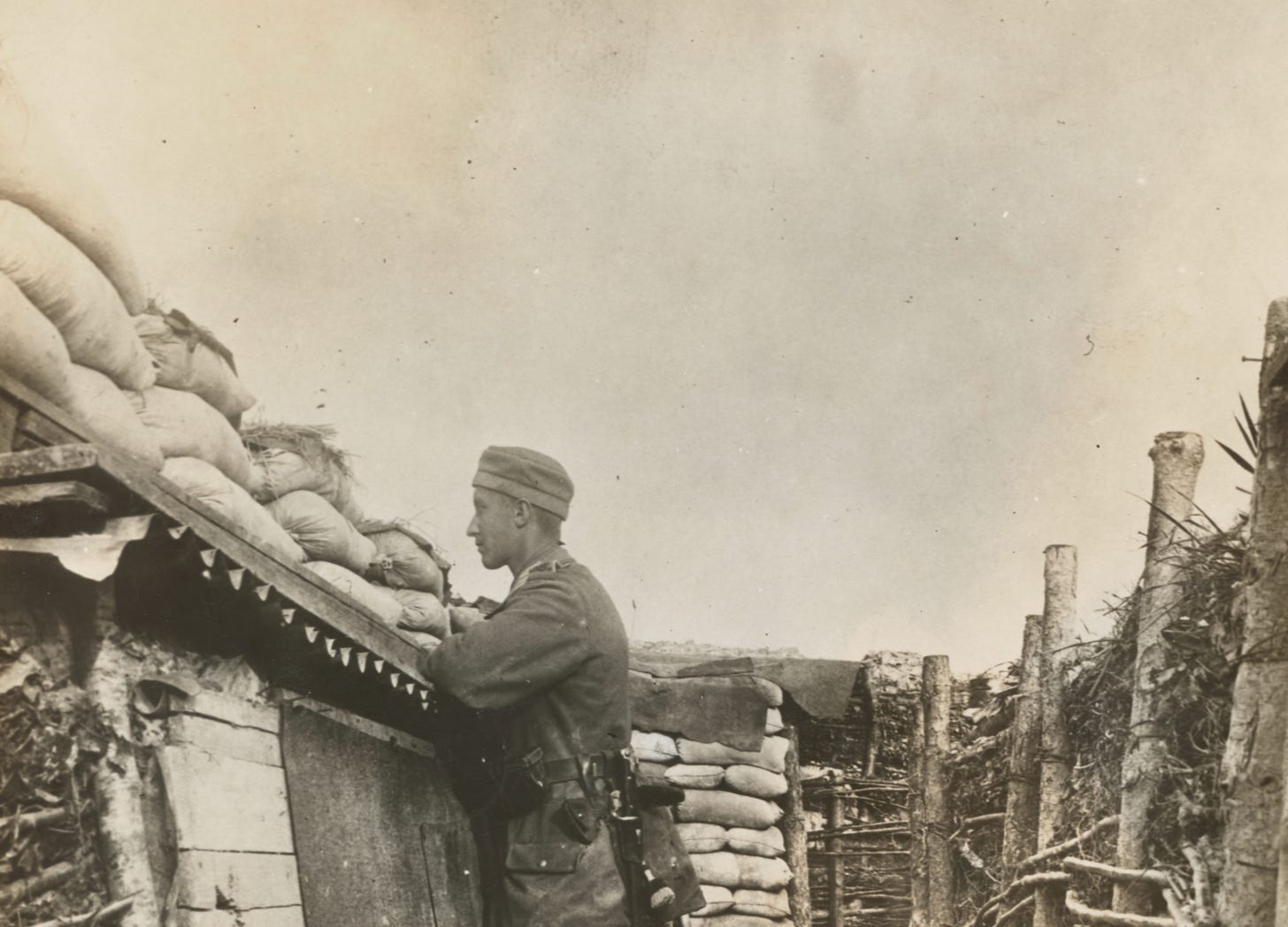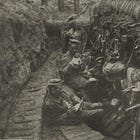On Watch
Diary of a Stosstrupp Leader (Part 9)
This post continues the translation of the diary of a German soldier who fought in the First World War. Readers can find links to other posts in this series in the following guide.
5 November 1916
A magnificent autumn Sunday. Guard duty in the camp. In the evening, our company went into the trenches to relieve 7./IR 97 (the 7th Company of Infantry Regiment 97). We found a new, beautifully-built, but shockingly wide, position located to the left of our old position. I was made leader of my half-platoon (Halbzug) and deputy leader of my platoon. I bunked with Deputy Officer (Offizier-Stellvertreter) Wennemann of the 3rd Platoon. From one to six in the morning, I served as the duty platoon commander for my company. From four to nine in the afternoon, I performed the same duty in the trenches.
6 November 1916
I stood duty (as duty platoon leader) from one to six in the morning.
7 November 1916
I served as duty platoon commander from from nine in the evening to one the following morning. The duty platoon leader (Z.v.D., Zugführer von Dienst) was not allowed to stay in his shelter. Rather, he was obliged remain in the fighting trenches in order to supervise the sentries, and, especially, the forward listening posts, and bears responsibility for the alertness of the weary men standing watch. In the case of an enemy attack, the duty platoon leader sounds the alarm for the entire company and fires the flare pistol that brings down the protective barrage (Sperrfeuer). He therefore carries the flare pistol on his person.
8 November 1916
I stood duty from one to six in the morning and then, in the middle of the day, from ten to twelve. As he had done for several days, the enemy continued to subject our trenches to lively small arms fire.
9 November 1916
I learned of my promotion, by order of the Military Cabinet on 25 October 1916, to the rank of Fähnrich. Lieutenant Rudloff (my company commander) and I drank a bottle of wine.
10 November 1916
My nineteenth birthday. We received a report that quoted a claim, made by a Russian deserter at midnight or so, that an attack by nine battalions, supported by nine field artillery batteries, would soon take place. Feverish activity and tense anticipation. The attack, however, failed to materialize. I received a package filled with candles and cakes.
11 November 1916
A captive balloon appeared behind the Russian position. Much rain fell.
12 November 1916 (Sunday)
Duty from six to nine in the morning, nine to one at night.
15 November 1916 (Sunday)
Nothing exceptional took place. I stood duty for five hours at night, and two hours during the day. Our own trench mortars fired. The Russians responded with artillery fire. We placed a sign, written in Russian, on the Russian barbed wire obstacles. It read ‘We declare Poland an independent kingdom’. Two days later, the sign had disappeared.
Quiet reigned all day.
to be continued …
Source
The text comes from Alwin Lydding Meine Kriegstagbuch (My War Diary), unpublished manuscript, Bundesarchiv (German Federal Archive) N 382/1
For Further Reading






It is also master level trolling and completely ironic to place a sign on Russian barbed wire reading “We declare Poland an independent kingdom”!
If find the use of the term “lively”(lebhafte?) to describe enemy small arms fire deeply ironic.